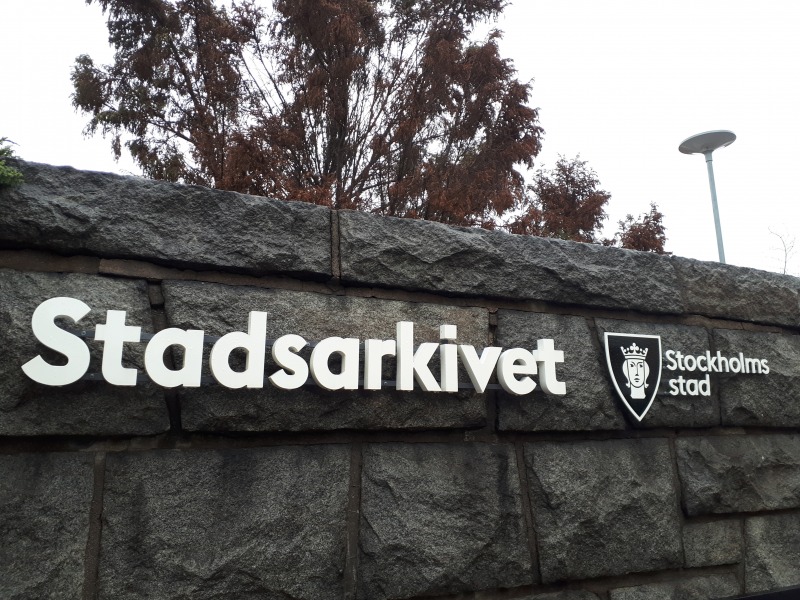Graduate Student Research Diary: Stewart Lawrence goes to Sweden

History MA candidate Stewart Lawrence describes his experience traveling to Stockholm for archival research.
“In February 2019, I travelled to Stockholm, Sweden using funding provided by the Faculty of Humanities and Social Sciences’ Scholarship in the Arts program to conduct research for my Master’s thesis on the formation and expression of a working-class identity in late nineteenth-century Stockholm. Sweden underwent an extremely rapid industrialization process that demanded vast amounts of labour from the countryside surrounding Sweden’s major urban areas, including its capital city of Stockholm. This demand led to a great influx of people from different regions of Sweden, each with their own unique customs and dialects of the Swedish language. The topic of my research is how these unique identities came together in the dense urban environment of Stockholm and how the new working-class identity developed to encompass them all.
The premise of my trip was to review documents called Förhörsprotokoler, or interrogation protocols, at Stockholms Stadsarkiv, or Stockholm’s City Archive. I spent four days in the City Archive and took photographs of over five hundred protocols for the year of 1885. The protocols are perhaps the most powerful historical documents I have come across so far in my research on the Swedish working-class in the late nineteenth-century. The amount of information they provide is staggering; not only do they provide occupational and residential data which is vital to my reconstruction of the Swedish working-class, but also such qualitative information such as height, eye and hair colour, and the general physique of the people they document. This qualitative data, coupled with the quantitative volume I was able to photograph, will allow me to form an analysis of working-class individuals and how they expressed an identity through what was perceived as deviant behaviour.
Travelling to Sweden and working there would not have been possible without the funding provided by Scholarship in the Arts. My time in Stockholm was significant for me in a number of ways. I was able to practice my Swedish and experience the culture of a modern European city when I attended the ballet and opera after the archives had closed. The materials I gathered in the archives will be fundamental to the construction of my Master’s thesis.”
Stewart Lawrence, MA candidate, Department of History